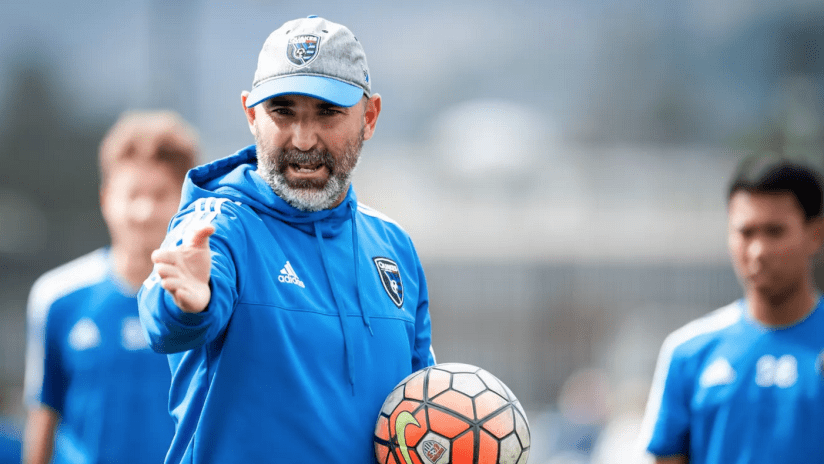After serving as the head coach for the Earthquakes Academy U-18 and U-16 squads since July 2015, Paul Holocher’s responsibilities with the club expanded in November of this year as he took on the role as the director of player development. With his new responsibilities, Holocher will oversee the Earthquakes Youth Club while continuing to coach the academy.
SJEarthquakes.com sat down with Holocher to talk about his vision for the youth club and his new role with the Quakes.
SJEarthquakes.com:
What does your role as director of player development entail?
Paul Holocher:
My role as Director of Player Development will include, most importantly, an emphasis on coach development. I will oversee and assist our coaches with ongoing education. What are the most important things we can be teaching at each age and with what methods? How can we optimize the development of our most motivated and high potential players? How can we help the player or the team progress? All these questions are what I am excited to help with along with the other members of our academy staff. We are looking forward to the academy staff working more closely with the youth club at every level to keep improving.
SJEQ:
What are you hoping to achieve as the director of player development?
PH:
I’m looking forward to working with the youth club and especially organizing the club in a way that will improve player development and the pathway towards the Quakes Academy. This will include providing support for the club’s coaches through ongoing education. One thing that is certain is that you should never stop learning as a coach or educator. Our goal is to come together as a team of coaches who can look at the game in a similar way and teach the game with consistency. Top-level youth development is not left to randomness; it happens best in a more systematic and thoughtful approach.
SJEQ:
What fuels success at the youth level?
PH:
For me, successful youth soccer development goes well beyond simply winning a soccer game. As coaches we are here to develop players for the long-term, and not only the technical and physical qualities. We should give tactical insights that can help players on any team or level, such as teaching good positioning, awareness and decision-making or by simply teaching good habits in training. Each age is important and each year should be a platform of learning that leads to more insight, clarity and enjoyment.
SJEQ:
What goals do you have for youth development?
PH:
Even at the earliest ages we want to develop our style of play. This will focus on how we value and utilize the possession of the ball, including building up from the back, creating chances, scoring and wining back possession. We want to develop a youth club and academy that strives to be vertically integrated. In that respect, our goals going forward must be to develop coaches who share this vision, are willing to work hard to be active students of the game and teachers of this style. We want to develop players who are skillful, resourceful, creative individuals, but who are also intelligent and adaptable tactically and can play with a collective purpose. Just as importantly, we want to also develop good young people who show humility, sportsmanship, effort, determination and commitment.




